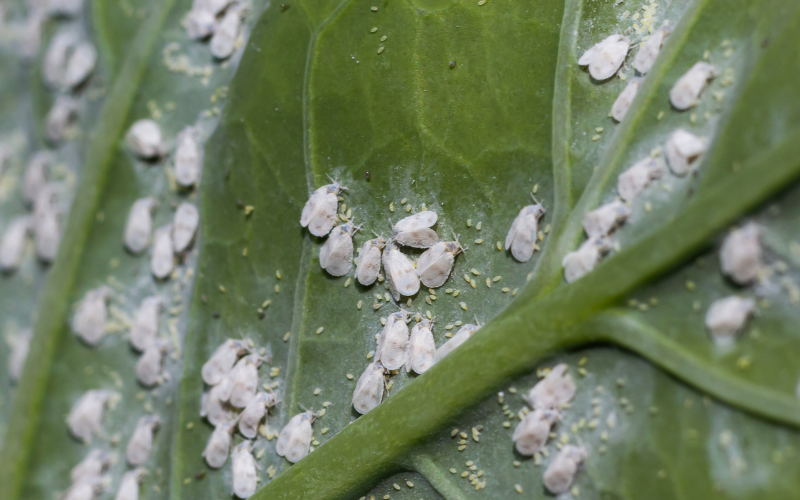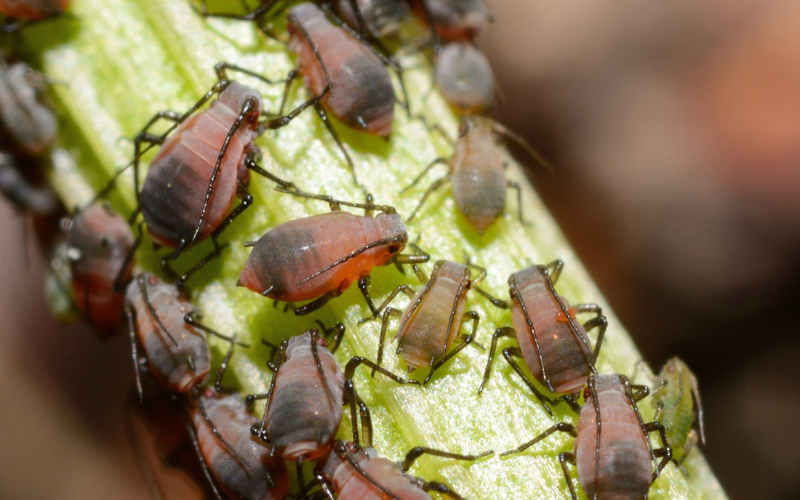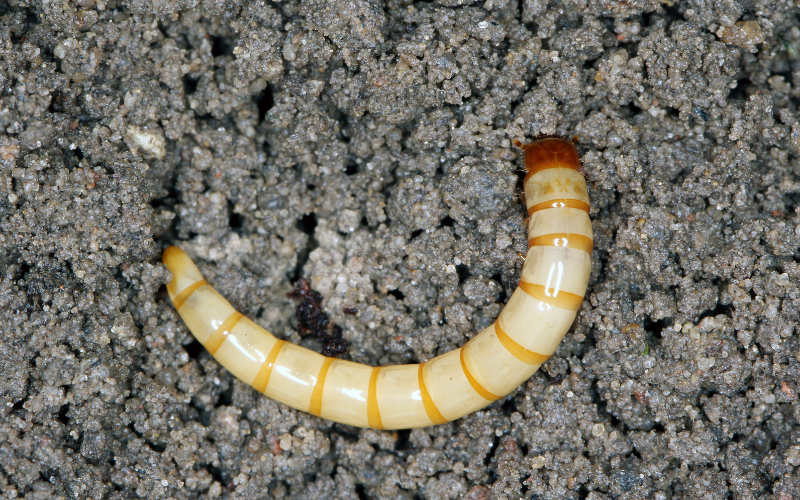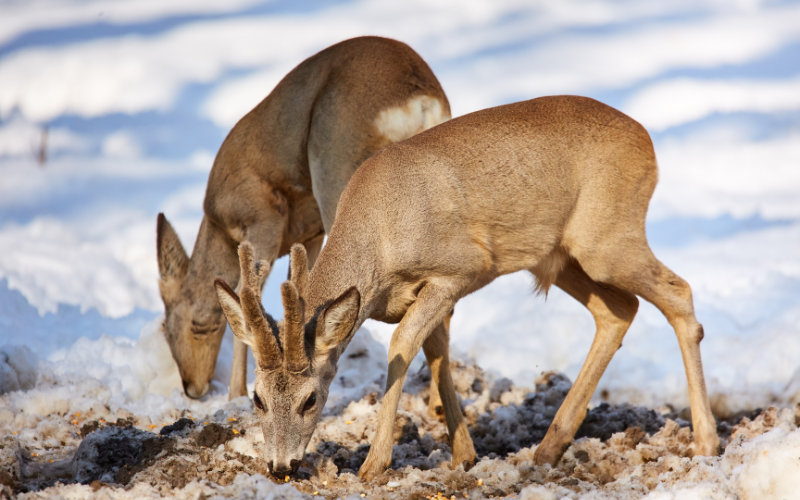It’s widely recognized that vegetable plants face more pests in warm weather. However, even in cooler seasons, growing vegetables still comes with pest challenges.
Here are some vegetable plant pests that you’ll need to watch out for even as the weather gets cooler.
Spider Mites

Although these tiny arachnids thrive in warm and dry conditions, indoor plants, especially those in greenhouses, are particularly vulnerable to these pests. During the winter and colder months of the year, spider mites can still affect plants grown in greenhouses and other protected spaces.
Whiteflies

Although whiteflies are warm-weather pests, they are common pests found in greenhouses and on indoor plants during cooler weather and even in winter. Frequently checking your plants can help you quickly eliminate these pests before they cause large-scale damage and disease.
Aphids

While most aphids are more active in warm but not too hot kind of weather, some species can survive in cooler conditions. They may even infest indoor plants, especially in greenhouses, in colder weather. They can even overwinter on outdoor plants to resume their activity once the weather starts to warm up.
Cabbage Moths and cabbage butterflies

Brassicas grow well in cooler weather. Although cabbage moths are mostly seen to be active during warmer weather, they can still lay eggs and cause damage to your plants during cool weather. However, they will pupate in the soil once the weather becomes colder.
Wireworms

Wireworms are the larvae of click beetles and can damage root crops like potatoes and carrots, even in cooler weather. Planting trap crops like mustard or radish or trapping wireworms using buried pieces of potato or carrot can help reduce wireworm populations. Practicing crop rotation of vegetables that are affected by wireworms can break their lifecycle.
Slugs and Snails

While slugs and snails are generally less active in cold weather, they can still be active in mild winter conditions and if so will continue to feed on plant foliage. Snails and slugs can defoliate entire plants literally overnight, so having an eye out for their presence certainly does help.
Rodents

Rodents like mice and voles are usually active year-round and may keep feeding on root vegetables, and the roots of other vegetable plants causing them damage. Adding mesh under your raised beds is one way of keeping rodents out of your vegetable garden and away from your plant roots.
Rabbits

These mammals are active throughout winter and can cause clear-cut damage until just above the surface of your vegetable plants. Chicken wire mesh can be added around your plants and up to 6 inches under the soil to make it less likely for rabbits to reach them. Planting mint, basil, and garlic in the garden may repel these little mammals.
Deer

Similar to rabbits, deer are also usually active throughout the winter and may feed on garden plants if they have a chance of entering it. YOu can cover your plants with netting to stop deer from getting near them. It’s also said that deer dislike the smell of mint, so you can grow mint if the weather permits.
Here’s how you can better protect your vegetable plants from pests even in colder weather:
- Continue to regularly inspect your plants, especially those grown indoors or in greenhouses, for signs of damage or pests, even in cooler weather.
- You can consider growing your vegetables in raised beds as this makes it easier to add cold frames, install mesh at the bottom, and other measures that help protect your plants from both the cold and pests.
- Larger pests like rabbits and rodents can hide in overgrown areas near your vegetable garden. Removing such areas in the space surrounding your vegetable garden can help remove spaces where larger pests can hide.
- A lot of these pests that are active in cooler weather like cabbage moths, cabbage butterflies, and wireworms build up in the soil. Practicing crop rotation by not planting the same type of vegetable or vegetables that serve as a host plant for a particular pest can help reduce their numbers and eventually eliminate these pests from your garden.
In conclusion, cooler weather doesn’t exempt your vegetable garden from pests. Pests like spider mites and whiteflies can still remain active in greenhouses and other indoor settings, while pests like aphids, cabbage moths, cabbage butterflies, wireworms, as well as slugs and snails can continue to be active in cool but not cold weather. On the other hand, larger pests like mice and other rodents, rabbits, and deer can stay active all year round. To protect your plants you should regularly inspect your plants, clear overgrown areas to deter larger pests, and practice crop rotation to reduce pest numbers as this will help safeguard your garden even in the colder months.


